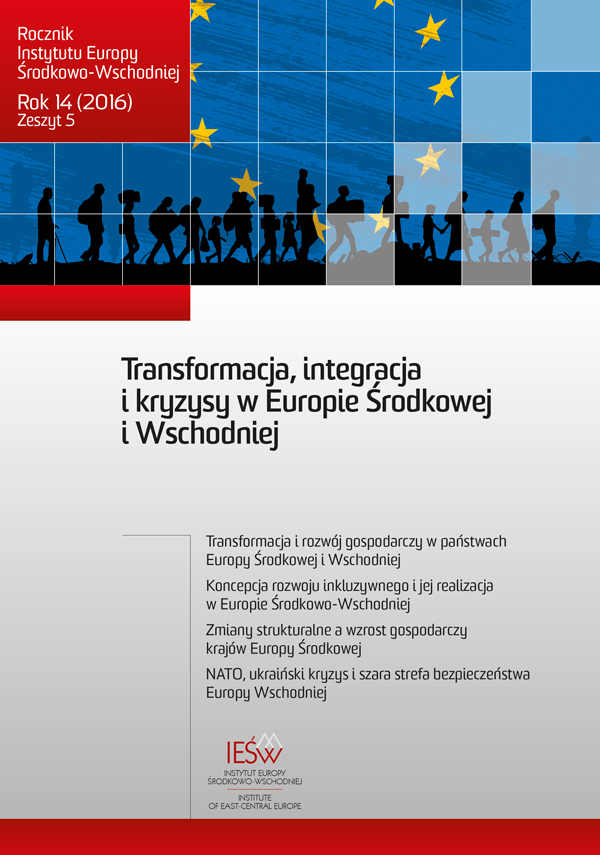
We kindly inform you that, as long as the subject affiliation of our 300.000+ articles is in progress, you might get unsufficient or no results on your third level or second level search. In this case, please broaden your search criteria.

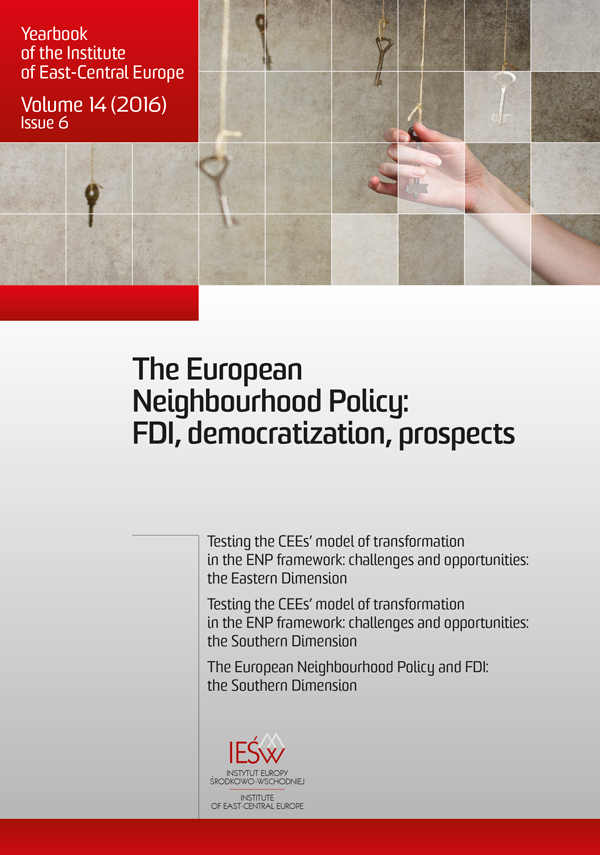
The launch of the ENP was accompanied by a significant increase in FDI inflows to MENA economies. This rendered the ENP’s supporters hail its relevance. However, it is questionable if the rise in FDI inflows to the MENA region over the period 2004-2013 can be attributed solely to the launch of the ENP. This paper demonstrates that, while over time the volume of FDI inflows to MENA countries increased, it should be attributed to three groups of factors, i.e. positive FDI trends in the world economy; actions by MENA countries aimed at reforming their economies and making them more FDI-friendly; development of economic cooperation with the EU member states as well as with other countries and/or regions. In this view, the onset of the EU-MENA cooperation, the ENP framework included, constituted only one set of factors that influenced the volumes of FDI inflows to the MENA region over the period in question.
More...
The ENP is an offspring of the EU’s ambition to manage its relations with countries located in the Southern Mediterranean. In this sense, starting with the Barcelona Process and the ensuing Euro-Mediterranean Partnership, the power of political gravity in the ENP has always pulled this policy framework toward the South. From this perspective, the ability of the governments of Poland and Sweden to successfully promote the idea of the establishment of the Eastern Partnership, meant as a way of re-balancing the ENP’s focus and pre-empting the emergence of a possible power vacuum in the region, deserves particular attention and applaud. To certain extent and in a forward thinking manner, once agreed upon, the EaP became a powerful instrument for the EU to manage its relations with countries beyond its eastern borders. Today, given the developments in the EU’s southern and eastern neighbourhood, the salient question is if the EaP will retain the clout it requires if the EU is to efficiently manage its relations with countries Eastern Europe and in the broadly conceived post-Soviet space. The objective of this paper is outline the key problems and challenges that may protract the EU’s capacity to do that.
More...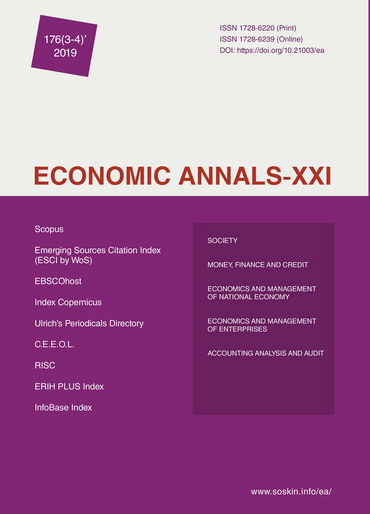
Recently, we have observed a lack of modern research on the question of the practical realisation of the mental space concept. This determines the topicality of the authors’ research. The article studies the multiple ways of development of international economic and political relations, based on an empirical model of interaction of mental spaces. The authors of the article have developed an empirical model on the basis of a formula containing (in a codified form) an imbalance of mental constructs of the basic political and institutional structures and the environment. The concepts of «congruent interference» and «non-congruent interference» of mental constructs have been introduced. The mental space consists of a dynamic unity of mental constructs. The present research is based on the following empirical models: the political process (introduced by Donald Morrison and Hugh Stevenson) and the mass instability (developed by Ted Gurr). It has been shown that such an integrated approach makes a new concept topical, being the imbalance of the mental construct. It is calculated as the sum of four elements such as the level of realisation of individual values of the public environment as a result of the implementation of foreign policy, the level of realisation of basic political institutional structure values connected with the social environment, the emotional factor of the basic political institutional structures interacting with the social environment, and compensatory resources. The authors have presented prospective methods of influencing the mental space, given the current trends in the development of information and social networks, where the black swan effect is crucial in the information field. In terms of modern conditions, this effect is associated with the emergence of unforeseen actors capable of changing the public opinion. These are the public opinion leaders. The manipulation of social networks has been emphasised among the methods of influence. A method based on creating groups, public pages and channels for interpreting the events has been shown. It is also noted that the successful interaction of states is possible thanks to the congruent interference of their mental spaces. The reason for the deterioration of relations between them is the imbalance of mental constructs and spaces in general, resulting in the political instability. The given model can be successfully used for analysing and forecasting not only the development of international relations and making alterations to the foreign policy. It is obvious that the scope of its application can include as well the renewed trust to the candidates seeking elections, the managers at any level and the like. In fact, the quality of the social relations between the two subjects can be shown in accordance with the abovementioned model.
More...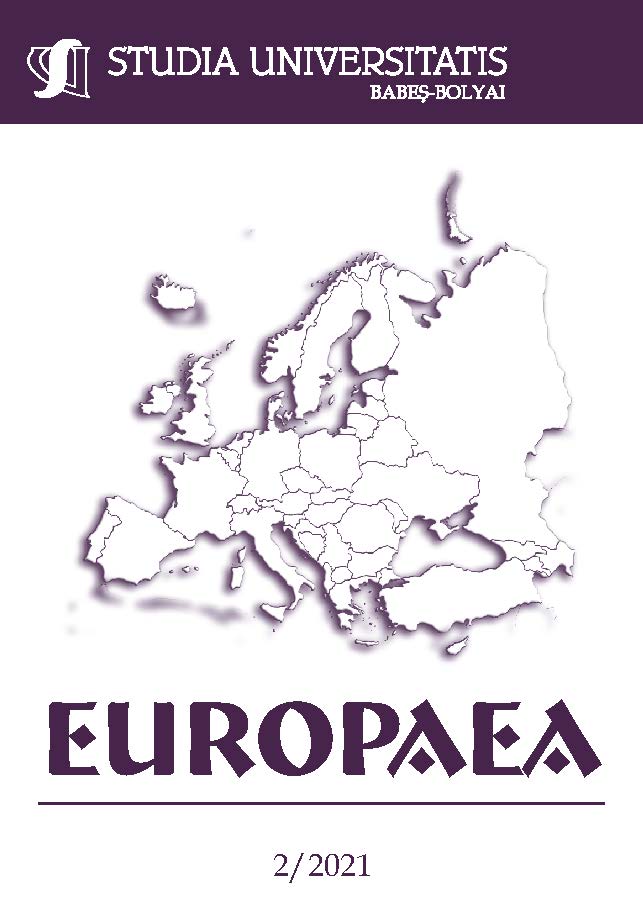
The twentieth century was marked, especially in its second part, by the rivalry of the United States and the Soviet Union, a rivalry that prompted many analysts to devise theories about this seemingly perpetual bi-polar international system. Yet after 1989 these theories crumbled under the seemingly unexpected dissolution of one of the two poles of the system, and thus new theories emerged, trying to better explain what was happening. One such theory, the Social-Constructivist one, tried to argue that identities, ideas and the way in which these are constructed also play a pivotal role in international relations. In the pages below I will try to analyze what is emerging to be a similarly century-defining rivalry, the one between the United States and the People’s Republic of China, through the ‘lens’ of Social-Constructivism, to find out if the theory laid out by Alexander Wendt almost three decades ago can still aptly explain the world of today.
More...
Based on increasing interdependence as a global context of the international relations development, as well plurality of international relations, the main focus of this paper is on a state as a key actor of international politics. This paper, firstly, considers four key crucial features tied to actors of international relations, and, then, offers classification of these actors. The main focus of this paper is an explanation of crucial features which allow to make difference between the state from the other international actors. On the basis of conducted analysis follows conclusion that states, despite increasing wave of globalization, remain the most significant actors of international relations. States rely on each other due to existence and functioning of numerous international organizations.
More...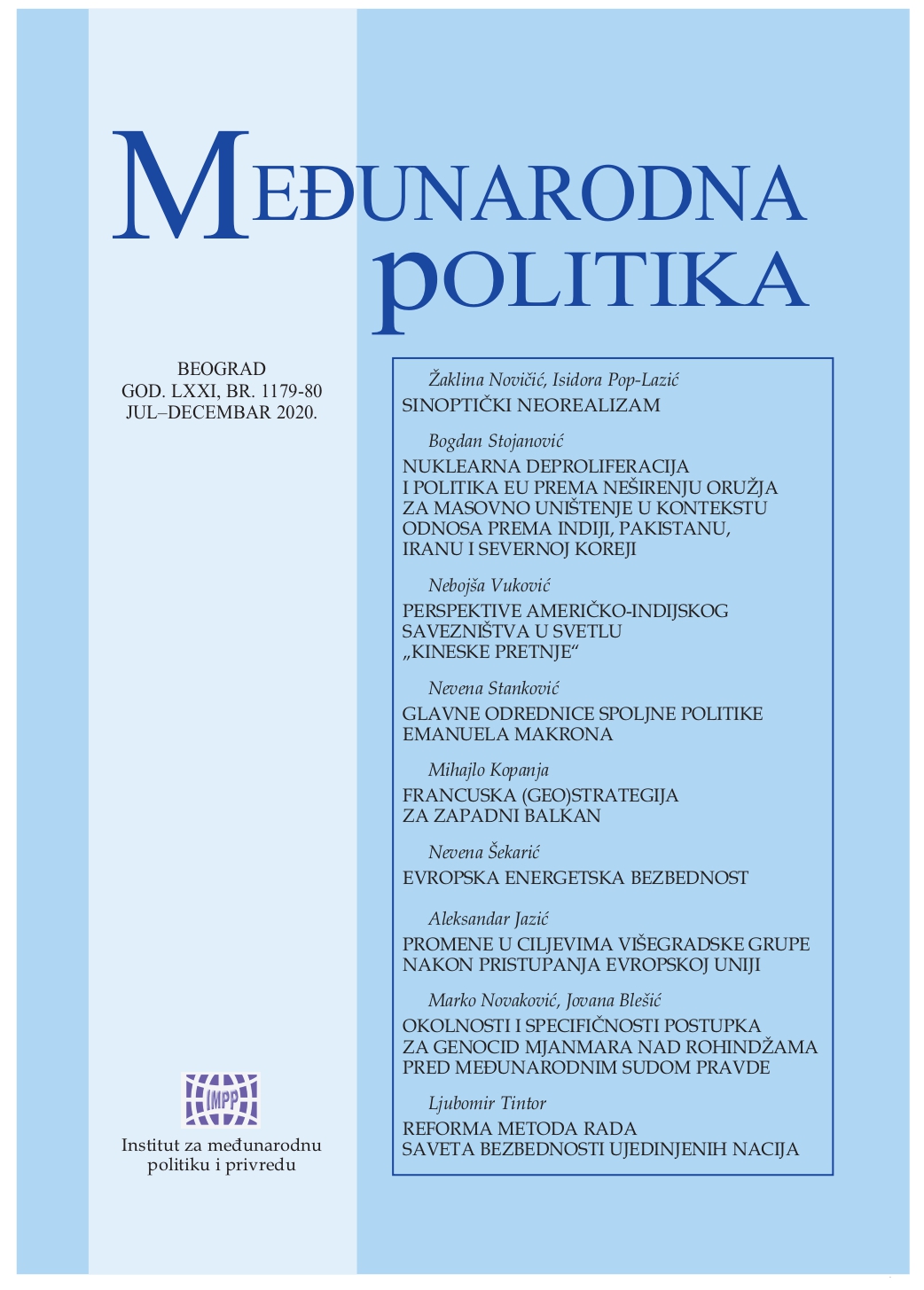
French foreign policy has been a reflection of its political history, cultural identity and national conception of France's role in the world as a global leader of freedom. In the context of growing interdependence, France faces a dynamic of globalization often perceived as a threat to national identity. The victory of Emmanuel Macron in the French presidential election in 2017 enounced the beginning of a different foreign policy. Believing in the diplomatic potential of the French Republic, President Macron underlined the necessity of a new Europe and its strategic autonomy, presenting himself as a potential new leader. Compared to the former French presidents, the youngest French president presented a different approach, staying committed to historical principles. This paper analyzes the main aspects of Macron's international activities: establishing a relationship of trust with US President Donald Trump, ”reviving” Europe by revitalizing Franco-German relations, a more cooperative relationship with Russian President Vladimir Putin and France's role in North Africa and the Middle East
More...
With the publication of the short technical note titled “The French Strategy for the Western Balkans“ in April of 2019, it seems that after more than half a century, France has decided to regain its influence in the Balkans. By stating that French president Emmanuel Macron desires to formulate a genuine strategy with a concrete set of measures, the paper observes the stated document through the theoretical stipulations of the strategy. Through conceptualizations of the strategy and grand strategy, and with considerations of the place of geostrategy between these concepts, the paper determines that although the text of the note fulfills the necessary elements to be labeled as a strategy, there are discrepancies between the will of France and the objectives, ways and means formulated within the document. Therefore, the paper concludes that the French Strategy for the Western Balkans represents a traced path of French action that could lead to a reformulation of their strategy in the future.
More...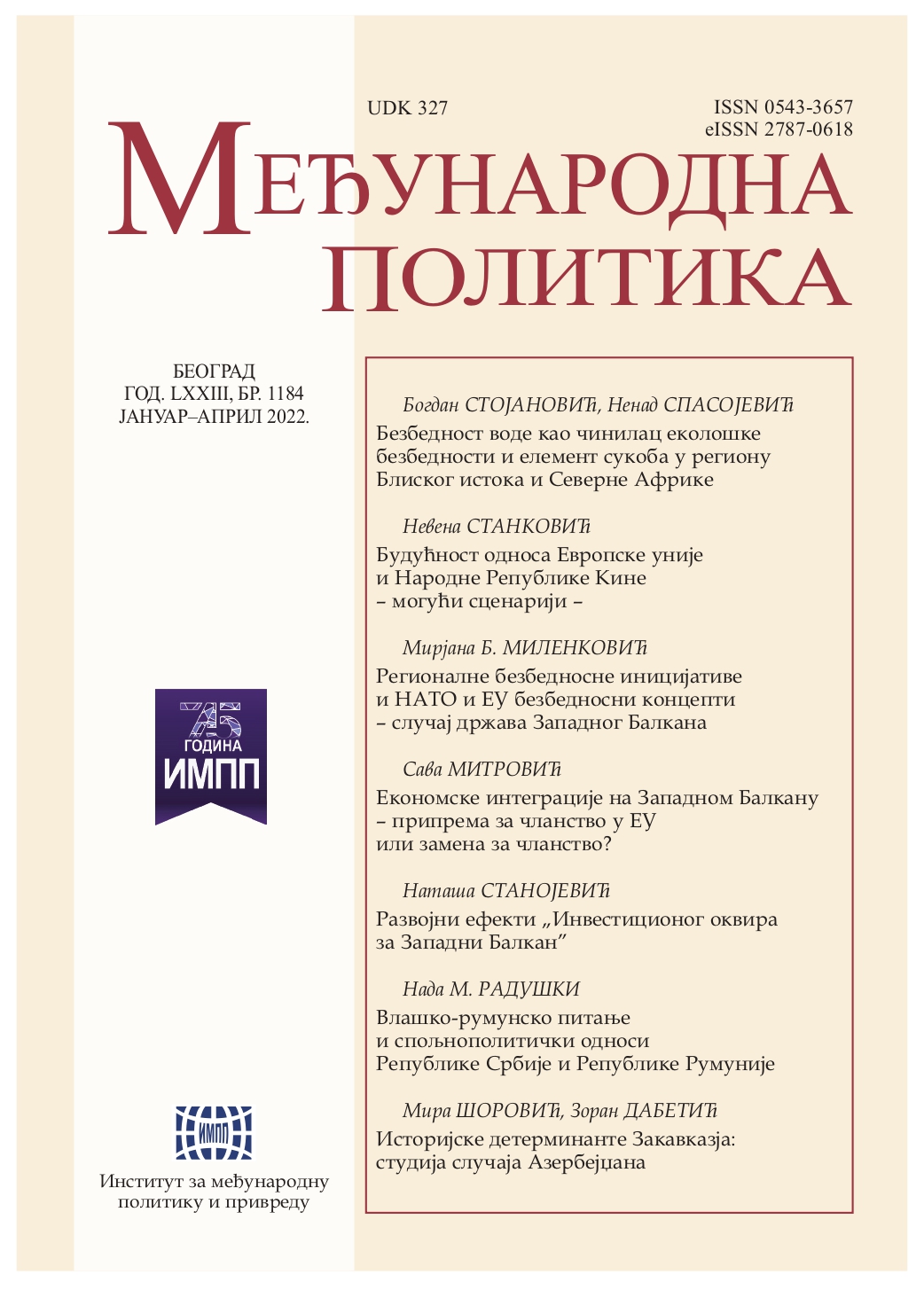
Lately, international politics has been characterised by tensions among major powers that disrupt united action on global challenges such as the climate crisis and the COVID-19 pandemic. In the context of the ongoing challenges that the European Union (EU) and the People's Republic of China (China) are facing, the nature of this partnership has been changing. Since the end of 2020, foreign policy tensions between the EU and China have been intensifying significantly. This is demonstrated by the mutual sanctions imposed on both Chinese and EU officials, the frozen process of ratification of the Comprehensive Agreement on Investments, as well as the more confrontational attitude of the EU towards China. On the other hand, although the EU does not freeze relations with China, it also does not have a coherent strategy towards China. From the perspective of a practical geopolitical approach, the article examines possible scenarios for this complex relationship in the future: further raising of tensions in EU-China relations, gradual mutual distancing, and perspectives for an optimistic outcome in relations between the two sides, with possible implications for the EU and its member states. The literature review, content analysis of relevant documents, discourse analysis, and the scenario method are the primary research methods. The main finding of the paper is that in the foreseeable future, the most certain scenario is the gradual distancing of the EU and China, which could be characterised as a deteriorated status quo. In addition, the paper analyses the possible consequences of the negative outcome of the situation and how the further deterioration of relations would affect trade and investment, increase import costs, and endanger a green transition for the whole European Union.
More...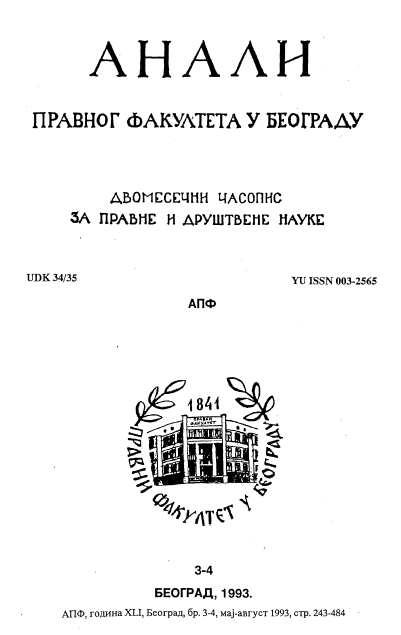
Twelve years since Serbian southern province of Kosovo and Metohija (thereafter Kosovo) unilaterally declared independence from Serbia in 2008, the Presidency of Bosnia and Herze¬govina, a body in charge of conducting Bosnia and Herzegovina’s foreign policy, considered recognizing Kosovo. The central argument suggests that the lack of recognition does not prevent Sarajevo and Pristina from engaging, particularity at the regional level. The article analyses how polarized political scene is in Bosnia and Herzegovina on the issues of recog¬nition of Kosovo and what are the limitations to these relations from advancing. It will be argued that the internal political dynamics in Bosnia and Herzegovina play a decisive role in shaping Sarajevo’s relationship with Pristina. By relying on the state recognition theory, the article aims to analyse bilateral and multilateral elements of diplomatic engagement without recognition. It will be argued that the key element of interaction between the two is the lack of a formally shaped intent on the Bosnian side to recognize Kosovo as an independent state.
More...
The observed impact of Russian influence on the Baltic states, including Estonia, involves the use of so-called soft methods, which are expressed, among other things, through the implementation of information warfare, political games, and direct influence on decision-makers and citizens of the state. The strong arguments of Russia’s diplomatic apparatus remain references to religion, language, nationality, history, and national borders. Within the framework of this article, quantitative methods of measuring Russia’s impact on Estonia will be discussed, which concern such areas as demographics, the amount of imports, exports, and parliamentary elections.
More...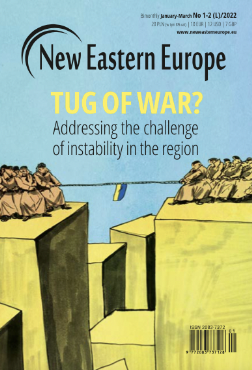
There are some problems in politics that simply donot have good solutions. Relations between Armeniaand Turkey are certainly one of these issues. Yet, for thefirst time since 2009, a move towards the normalisationof political relations now seems to be within reach.
More...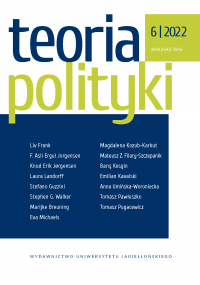
It seems that the Indo-Pacific label has been deployed by India to validate its great power aspirations. Such operationalization of strategic region-building acknowledges that the positioning of any international actor emerges as a power in context –it is not entirely an intrinsic property of an actor, but depends on the kind of interactions it has in specific (temporal and spatial) contexts. This condition is one of the key sources of the awkwardness of India’s great power. It reflects simultaneously (i) the contested nature of India’s standing –jostling between an aspiring great power, a regional South Asian hegemon, and a begrudging middle power; and (ii) the neglect of Indian aspirations (and self-perception) of great civilizational state. The paper examines these dynamics by, firstly, deploying a discursive study on foreign policy making, whose framework then provides the analytical backstop to the assessment of Indian foreign policy making in the Indo-Pacific region. As such, the concluding section of the paper suggests that the case of India confirms the assumption that it is the complex interactions between contestation and neglect that frames the awkward status of power on the world stage.
More...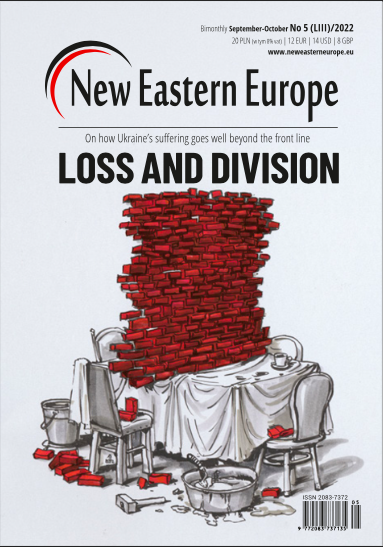
Over 30 years have passed since Germany reunified andsigned a pivotal agreement on bilateral affairs with Poland.Meant to signal the start of a new age of co-operation, the treaty’sspirit has nonetheless been challenged by numerous issuesboth old and new. A renewed agreement is now needed tobuild a shared future free from the ghosts of the past.
More...
Dutch reactions to the fall of the Berlin Wall andGerman reunification were, all in all, more positive thanmany Germans perceived them at the time. The main pointof Dutch concern was the role that a united Germanywould play in a (not yet united) Europe. Three decadeslater, some elements of the “concrete utopia” of a closerunion have been realised. Yet, both countries alsoface massive challenges in the years to come.
More...
The current geopolitical situation has disrupted theEuropean and global order, which were both consolidatedin the 1990s and have been key factors in the modernGerman model. The Franco-German duo is currently facingnew challenges and it will have to respond appropriatelyin a time when the EU’s global influence is shrinking inthe face of what some analysts call a “new Cold War”.
More...
The author analyzes the impact of personal relations between Chancellor Angela Merkel and the French presidents on the development of bilateral relations and European cooperation. Merkel was the only chancellor in the history of Germany that cooperated with four French presidents who represented not only various political options, but also had different life experience and political temperament.In this context, the main research question focuses on whether Merkel, with a view to maintaining bilateral relations vital for both countries and cooperation in the European Union, managed to establish not only good personal relations with the leaders of the Fifth Republic,but also gradually became the more dominant partner in these bilateral contacts to the benefit of Germany.The author proved the thesis that regardless of the political orientations of the French partners, their political experience and personal temperament, Chancellor Merkel managed to deepen bilateral cooperation between Germany and France and successfully combated the crises that occurred in the European Union. The source basis of the article are declarations, speeches, press conferences, reports from bilateral meetings posted on the websites of the governments of Germany (DieBundesregierung; Die Bundekanzlerin) and France (France Diplomatie; Ělysée) and conclusions from meetings of the EU European Councils (consilium.europa). Especially helpfulwere press articles published in the leading dailies and weeklies of France and Germany. On the methodological level, the comparative, decision-making, behavioral and source content analysis methods were used in the preparation of the article.
More...
The article is focused on the issue of bilateral relations, using the concept found in the study of international relations, which is special relations. The shape of German-Namibian relations is discussed, taking into account the special place that the Republic of Namibia holds in the foreign policy of the Federal Republic of Germany. For this purpose, the theoretical approach to the concept of special relations, the historical background of the relationship, as well as its contemporary shape are presented. The article presents arguments in favor of the thesis that Namibian-German relations can be described as special relations.
More...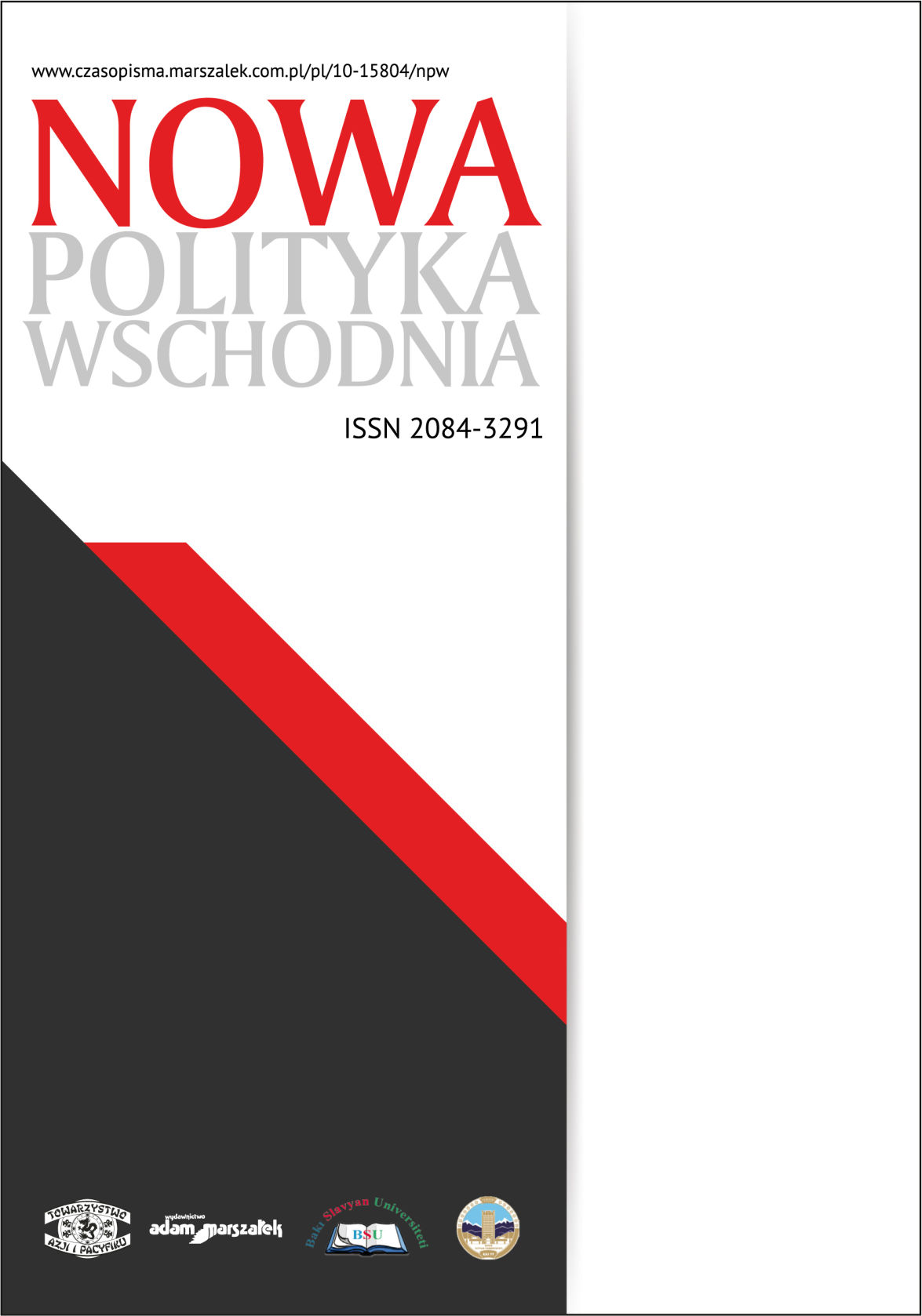
The aim of the article is to analyze Russian-Belarusian relations after 2018 and to determine the degree of advancement of the unification process of both countries within the formally existing since 1999 Union State of Russia and Belarus. In 2018, Russia took steps to accelerate the integration process. At that time, the Russian Federation presented two models for its future integration with Belarus. In order to force Belarus to tighten its cooperation, Russia used a whole spectrum of political and economic tools. The article diagnoses the main problems of the integration process to date and sets out the main goals of Russian policy towards Belarus. The subsequent stages of negotiations on deepening Russian-Belarusian integration were also characterized. The prospects for further integration of Russia and Belarus were also presented.
More...